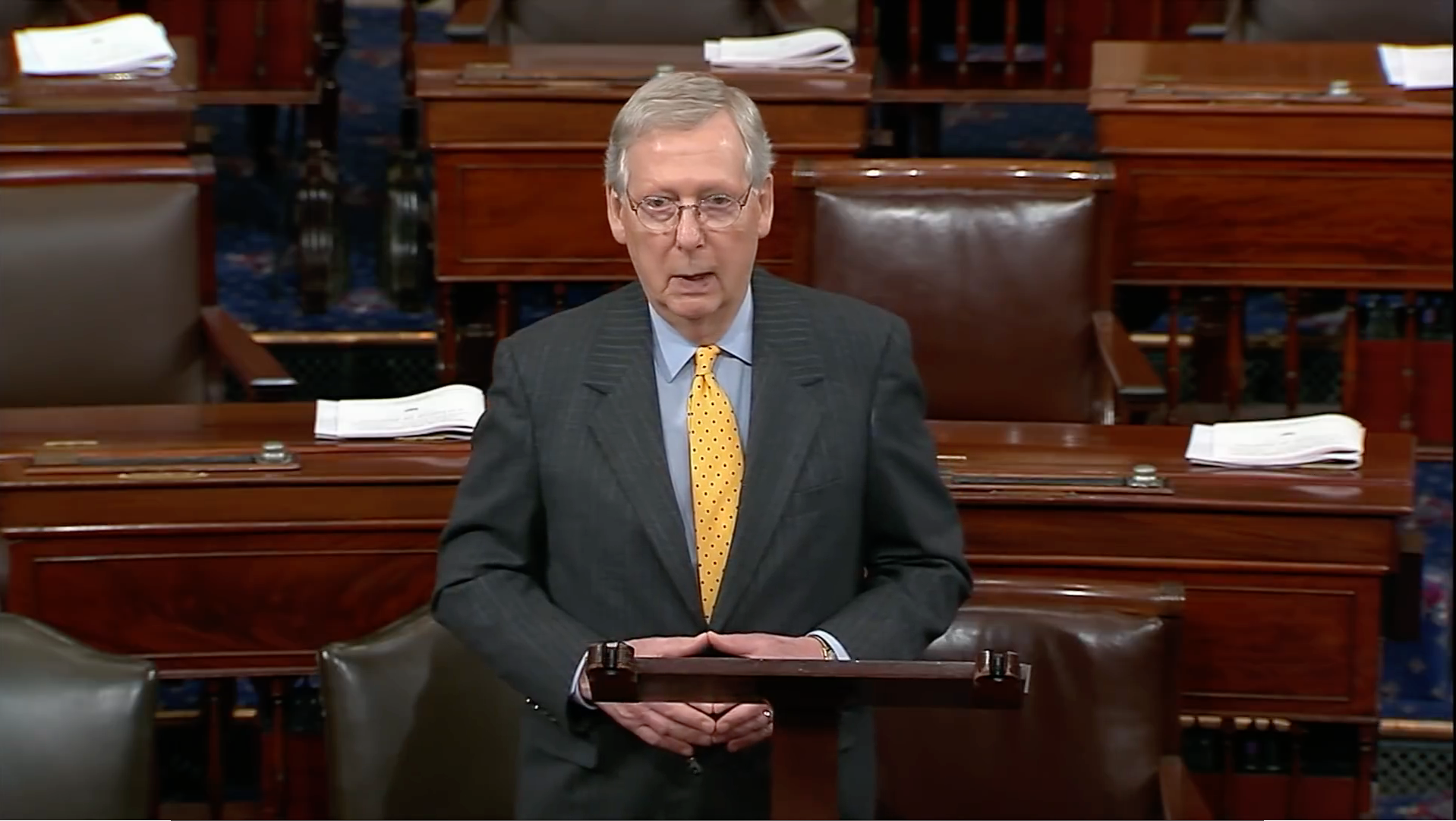Today is a promising day for the future of hemp. This morning Senate Leader Mitch McConnell (R-KY) took the Senate floor to introduce the Hemp Farming Act of 2018. This bill would permanently legalize hemp, removing it from the Controlled Substances Act, and establish it as an agricultural commodity. He was joined by Senator Ron Wyden (D-OR) in an exemplary display of bipartisanship.
“As the tobacco industry has changed, some farmers in states like Kentucky have been searching for a new crop that can support their families and grow our agricultural economy,” said McConnell in his opening statement. “And many believe they’ve found such a product: industrial hemp. But the federal government has stood in the way. Mr. President, it’s time to change that.”
McConnell also announced that U.S. Congressman Jamie Comer (R-KY) would be introducing a companion bill in the House of Representatives, sharing the same mission and language as the McConnell/Wyden bill.
Mitch McConnell has been working closely with Kentucky farmers, manufacturers and small business owners in the industry to draft this legislation. He supports hemp’s potential to “reenergize agricultural communities and provide a new spark for the U.S. economy.”
THE HEMP FARMING ACT OF 2018 AIMS TO DO THE FOLLOWING:
- Remove hemp – all parts of the cannabis sativa L plant with a concentration of not more than 0.3% THC – from the list of the Controlled Substances Act. This bill specifically de-schedules all derivatives, extracts, cannabinoids and seeds of hemp as long as those portions of the plant remain below the THC threshold. Hemp-derived CBD products would be classified as agricultural commodities.
- Allow states to become the primary regulators of hemp growth and cultivation in their jurisdictions, if they can develop a plan to properly monitor its production. The states would submit a regulatory plan to USDA, which must demonstrate policies of locating, testing and destroying noncompliant plants. States that have launched successful pilot programs, such as Kentucky, have already developed compliant regulatory foundations that can be easily transitioned for these purposes.
- Allow researchers to apply for competitive federal grants from USDA to further encourage innovations of the hemp plant.
- Explicitly make hemp farmers eligible to apply for crop insurance to enable them to build a steady business model and access to a competitive crop.
- Defund any interference with the interstate transportation or commerce of hemp or hemp products – an important statement to protect hemp farmers and businesses from misguided regulatory overreach.
The final language of the Hemp Farming Act can be found here.
